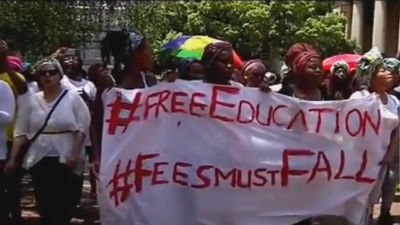With South Africa celebrating 21 years of democracy in 2015, the new post-apartheid political order was supposed to celebrate its coming of age.
But this was not meant to be, there was a change in SA politics, instead of celebrating ‘good stories to tell’; the localised struggles of marginalised South Africans finally spilled over from impoverished townships onto the campuses of tertiary education institutions. This is where students, from predominantly black middle and lower-middle-class households, confronted powers at the university administration and national governance levels.
Campaigns like #RhodesMustFall aimed at mobilising for direct action against the reality of institutional racism and #FeesMustFall aimed at reducing fees and making education progressively available and accessible to all emerged.
In addition to their concerns that related directly to tertiary education, another parallel narrative emerged alongside the ‘Rhodes Must Fall’ and ‘Fees Must Fall’ campaigns, which challenged the fundamentals upon which the entire post-1994 political transition were premised. ‘We were sold out by Mandela’ became a common catchphrase within these movements and on social media. By challenging the conditions of a negotiated settlement, once hailed as ‘miraculous’ by the international community, people drew parallels between the context of their struggles and those of other marginalised South Africans. An example of this has been these Wits student’s’ insistence on the end of outsourcing, in solidarity with university workers.
Both these campaigns brought about a marked shift in both the tone and content of our national discourse in 2015.
– By


